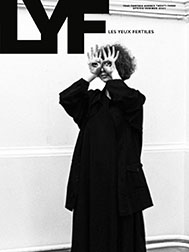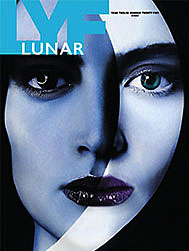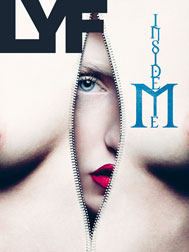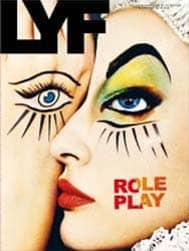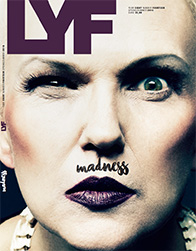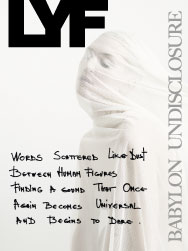
Vanitas vanitatum, et omnia vanitas. These famous words, with which the biblical book of Ecclesiastes opens and closes, have given rise to a myriad of reflections and, ultimately, have inspired the topic of this new issue of LYF.
In an age in which vanity seems to have taken precedence over everything, so much so that it can symbolically aspire to become the eighth capital sin, it acquires a very specific function: it leads to illusion, alters things, manipulates the world, it even transforms bodies, making them become something else.
A renewed esthetic law where time, life, emotion, and interiority are banned in favor of emptiness, the superfluous, mere appearance, of the “everything and all the same”.
The vanity of earthly things is a recurring theme in literature, sculpture and pictorial works of the past which carry within them a deep allegorical meaning: beauty is transient, it is destined to end. It is to be admired, but with the awareness that all this will pass. The exaltation of life in all its splendor and, at the same time, the feeling that all this will fade: the two things inevitably go hand in hand.
It is symptomatic how, in Vanity Fair, the female characters of William Thackeray, are two anti-heroines full of deeply human vices that represent meanness, ambition and the useless drive to achieve their own personal goals.
Contemporary vanity, on the other hand, is expressed above all through social networks that provide ample opportunities to show off, in which the anonymous life of each person becomes an extraordinary event simply because it is exhibited in front of an audience of potential admirers.
Are we at LYF tied to vanity? I was asked this question… We talk about a world of esthetics but also about one of content, research, ideas, and work. I think that even vanity can drive ambition, progress, the desire to do and to achieve something useful, something beautiful. After all, vanity is also the intensity of desire, passion, and we are made of these two components.
Sandor Marai wrote that “the character of a human being is composed mostly of vanity: the rest is a mixture of desires, generosity, fear of death and a sense of honor.”
The truth is that we cannot be perfect. Not these days. Not in this world. Not in our human condition.
So all that remains is to be magnanimous with our fellow human beings, accept the world as it is and love it.


